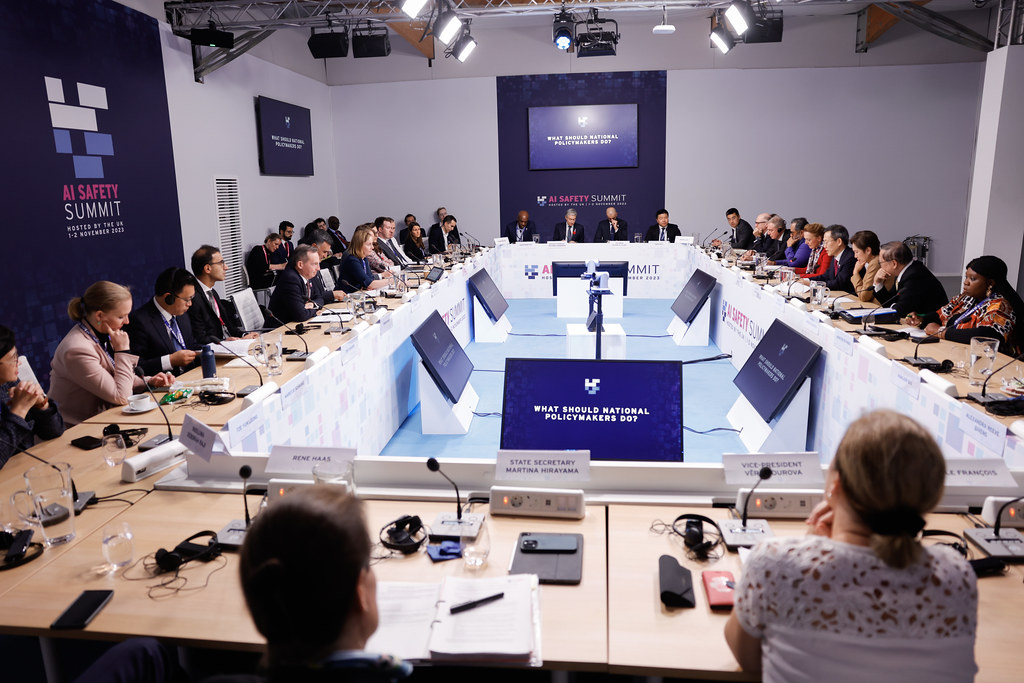Today's Headlines and Commentary
While no terrorist group has claimed responsibility for the attack in Istanbul two days ago, senior Turkish officials told reporters the three men were nationals of Russia, Uzbekistan, and Kyrgyzstan.
Published by The Lawfare Institute
in Cooperation With

While no terrorist group has claimed responsibility for the attack in Istanbul two days ago, senior Turkish officials told reporters the three men were nationals of Russia, Uzbekistan, and Kyrgyzstan. In wake of Tuesday’s triple suicide attack, which claimed 43 lives and wounded many more, Turkish law enforcement officials swept the city to arrest 13 people suspected of having links with the Islamic State. According to local media, the three men were part of a seven-person Islamic State cell that entered the country on May 25. The Associated Press has more on the identities of the men.
Dexter Filkins writes in the New Yorker that the Islamic State’s failure to take credit for the Istanbul assault is a testament to Ankara’s complicated relationship with the Islamic State. He points out that Turkish President Recep Tayyip Erdoğan was instrumental in ensuring the radical organization could grow to its current size by permitting Islamic State fighters to travel freely across Turkey and into Syria until only recently. Rukmini Callimachi at the New York Times echoes Filkins’ analysis and adds that the Islamic State has targeted Ankara since Erdoğan began cracking down on the foreign fighter transit under U.S. diplomatic pressure last year.
Turkish diplomats who were in Brussels this week negotiating for Ankara’s entrance into the European Union cited the recent attack as a justification for Turkey maintaining its stern anti-terrorism laws. The EU has consistently demanded that Turkey dilute its anti-terrorism laws, claiming they limit freedom of expression and lead to the arbitrary arrest of democratic activists. But top Turkish officials said the EU needs Ankara now more than ever given Turkey’s demographic and economic vibrancy and the EU’s recent loss of Britain. German Chancellor Angela Merkel has also backed Turkey’s membership in the wake of the Continent’s ongoing refugee problem. Reuters has more.
Reuters also reveals that U.S.-led warplanes launched a series of deadly strikes against the Islamic State around the recently liberated city of Fallujah on Wednesday. According to one U.S. official, the airstrikes killed an estimated 250 Islamic State fighters and destroyed at least 40 vehicles. If these figures are confirmed, yesterday’s attack would be among the most deadly ever against the organization. U.S. airpower will also assist an alliance of militias launching a major offensive against the Islamic State in Manbij, a city in northern Syria.
The Washington Post reports that President Barack Obama approved a U.S. diplomatic initiative to deepen the United States’ military partnership with Russia against terrorist groups such as Jabhat al Nusra, the al Qaeda franchise in Syria, in return for Moscow getting the Syrian government to stop bombing U.S.-supported rebels. This would mark an unprecedented level level of cooperation between the U.S. and Russian militaries. But critics outside the administration claim that the plan holds no consequences for Russia in case Moscow doesn’t hold its end of the deal. Rob Ford, a U.S. ambassador to Syria who resigned in protest of the administration’s policy, said the move would only boost the probability Syrian President Bashar al Assad stays in power after the civil war ends.
The Guardian reports that Iran is covertly recruiting Afghan Shia soldiers to fight in Syria for Assad. Analysts said the soldiers are often young and religiously devout men in search of money and a sense of meaning. Tehran offers Afghans both a residence permit in Iran and roughly $500 in monthly salary. While the exact number is difficult to calculate, the Guardian quotes Iranian state media as claiming 20,000 Afghans are fighting in Syria right now.
While Iran sends Afghan fighters into Syria, more than 60,000 Syrians are stuck in the desert on the Jordanian border without any aid for the past week. Jordan closed its border with Syria after a bomb attack near the informal camp of Rukban killed seven Jordanian security personnel. Medecins San Frontieres warned that only extremely limited supplies of water have reached the refugees and a large percentage of the Syrians are sick children suffering from malnourishment. The BBC has more.
Egyptian officials told the AP that a Christian priest and two members of the country’s security forces have been killed in three attacks by suspected Islamist militants in the Sinai Peninsula’s chaotic north. The priest was gunned down while walking in the city of el-Arish on Thursday. Christian clerics have been targets in the past by militants in the Sinai. In a separate attack, a bomb blast killed a policeman outside a hospital in el-Arish. The final strike was an ambush by Islamic militants of an ambulance taking a wounded soldier to the hospital in el-Arish. Another soldier was killed in that operation.
A roadside bomb struck a minibus in Somalia, killing 15 people. There was no immediate claim of responsibility for the attack, though homegrown extremist group al-Shabab has been active in the region.
Twin suicide attacks launched by the Taliban against convoys carrying Afghan cadets killed 37 people and wounded another 40, according to the Associated Press. The attack is the latest in a series of summer offensives by the Taliban, who frequently target Afghan troop convoys and buses carrying members of the Kabul government.
The Washington Post profiles the curious case of Mohimanul Alam Bhuiya, a former Columbia University student who joined ISIS, only to seek the FBI’s help in escaping after becoming “fed up” with the Islamic State’s “evil” and “dystopia.” Bhuiya, who fled from Syria into Turkey to make his way to a U.S. State Department outpost, pled guilty to providing material support to and receiving military training from the Islamic State and faces up to 25 years in prison.
In the aftermath of the Orlando shooting, Brookings’ Sahar Aziz opines that racialized countering violent extremism (CVE) programs are not constructive means of counterterrorism, and that we should redirect our efforts toward addressing gun violence, homophobic violence and failed American foreign policy in the Middle East.
In an effort to intensify counterterrorism measures, Indian authorities detained 11 men suspected of plotting a terrorist attack, the Journal reports. A senior official of India’s National Investigation Agency said that the men were taking orders from “an Islamic State handler.”
A Palestinian broke into a West Bank home and stabbed a 13-year-old Israeli girl to death, the Associated Press reports. The attack is the latest in a wave of violence that has seen 33 Israelis murdered since September.
Allegations of widespread civilian deaths in Yemen have moved London’s high court to grant permission for a judicial review to determine whether Britain's exportation of arms to Saudi Arabia, its biggest weapons client, violates weapon export laws, writes The Guardian. The Campaign Against Arms Trade (CAAT), supported by the UN’s finding of “widespread and systematic” targeting of civilians in Saudi-led strikes, has been arguing since March 2015 that weapons sold to Saudi Arabia were being used for human rights abuse due.
Defense One’s Eleanor Albert analyzes the long-lasting but complex military relationship between the United States and the Philippines, tracing the history of the alliance as it progressed from conflict to partnership. Find the full profile here.
Hague’s Permanent Court of Arbitration is expected to side with the Philippines in rejecting China’s historical claim to nearly 90% of the South China Sea, ending a long dispute that has resulted in military tension and trade disruption. Paul Reichler, head of Manilla’s legal team, told Reuters that China runs the risk of being labeled “an outlaw state” should it ignore the tribunal’s jurisdiction and ruling.
Al Jazeera covers the Japanese Supreme Court’s decision to allow for police profiling and surveillance of Muslims living in Japan. Read the full story here.
ICYMI: Yesterday, on Lawfare
Helen Klein Murillo covered a Hollywood TV show’s insurance claim hinging on whether Hamas’s attacks on Israel constitute war or terrorism.
Kenneth Anderson shed light on recent arguments that military drones are evolutionary, but neither strategically revolutionary nor transformative.
Paul Rosenzweig argued that our doctrine of homeland security needs urgent revision. He also doubted the efficacy of the updated terms of entry for visitors arriving under the Visa Waiver Programs, which asks visitors to reveal their social media.
Benjamin Wittes shared a new important study on a survey of sextortion victims.
Jack Goldsmith directed our attention to the recently published issue of the Harvard National Security Journal, which may be of interest to Lawfare readers.
Email the Roundup Team noteworthy law and security-related articles to include, and follow us on Twitter and Facebook for additional commentary on these issues. Sign up to receive Lawfare in your inbox. Visit our Events Calendar to learn about upcoming national security events, and check out relevant job openings on our Job Board.






